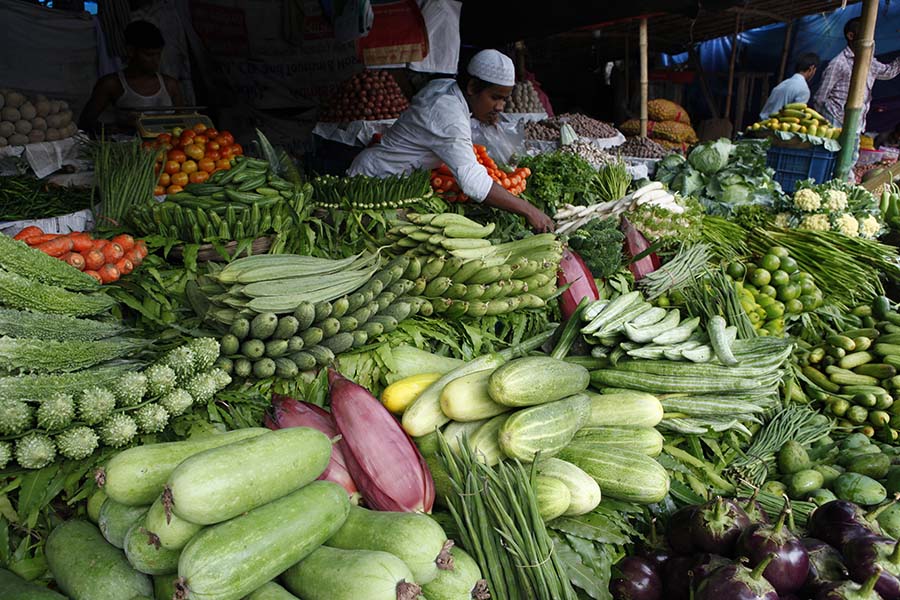
Published :
Updated :

The country's central bank, Bangladesh Bank (BB), has been trying to rein in inflation by reducing money supply, and to this end has raised the policy rate (the rate at which commercial banks borrow money from central bank) to 8.5 per cent to make money costlier. It has also freed the bank interest rate from previous control and left it to the market to be determined. The measures have been taken at the IMF's instance with the expectation that those would be able to tame the stubbornly rising inflation rate, which reached as high as 9.81 per cent in last March, accelerating from the previous month's (February's) 9.67 per cent.
Now, one would like to see how far those regulatory actions by the BB are to translate well to benefit the general public. The common people won't be interested in the abstract figures on the rise or fall of inflation, interest rates, etc. They would rather want the essential commodities market to reflect the outcome of the regulatory measures so taken. So far their experience with other IMF prescribed measures like withdrawal of subsidies on utilities like power and gas as well as fertilisers is that their prices have gone up to the dismay of the fixed and low income consumers (of the utilities) and the peasantry in the villages. They will have to pay through the nose to pay the bills as their incomes have not increased. For the entire focus of IMF prescriptions is to reduce the government's cost burden. Being a lender, the IMF would naturally want to make the government borrowing its money creditworthy. So, how such cost-cutting would affect the common people is of no concern to a lender. But the government should be concerned and have plans to protect fixed and low income people against the blow of the cuts in subsidies.
Similarly, costlier money may slow down money circulation, but that would also make small business tougher affecting negatively the informal sector of the economy. There should have been arrangements to protect this segment of the population. And since the essential commodities market is not an island, the central bank measures are definitely going to impact this forever volatile market. The prices of basic commodities like eggs, chickens and vegetables have meanwhile risen further in the city's kitchen markets. How to explain it? Though the retail market operators are yet to factor in the impacts of central bank measures as an excuse to raise commodities prices, they certainly have readied other explanations for the purpose. In fact, issues apparently having no connection with the essential commodities market are apt to drive up prices in Bangladesh. As for instance, volatility in the forex market should not affect the prices of locally grown agricultural products like vegetables, eggs, poultry, etc. But when you are dealing with essential commodities market in Bangladesh, everything is possible here.
Some kitchen market operators this time have reportedly blamed the heatwaves for the rise in the retail prices of egg by 25 per cent as of May 10 within a week's time, while chicken prices have gone up by 15 per cent. Similarly, vegetable prices have shot up without rhyme or reason. Earlier, the government took various measures including fixing of prices of certain essential commodities to cool the market. And there was also provision of strict penal measure for errant traders, but to no avail. The essential commodities market operators appear to be a law unto themselves. The unending volatility of the essentials commodities market has been behind the unbridled rise in the cost of living of the general public. One wonders if the various measures adopted by the central bank, or the government, for that matter, to combat inflation would finally help calm down volatility of the kitchen market.


 For all latest news, follow The Financial Express Google News channel.
For all latest news, follow The Financial Express Google News channel.